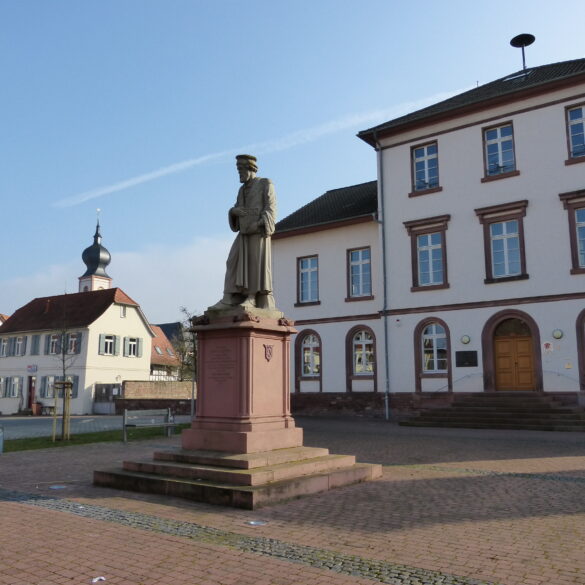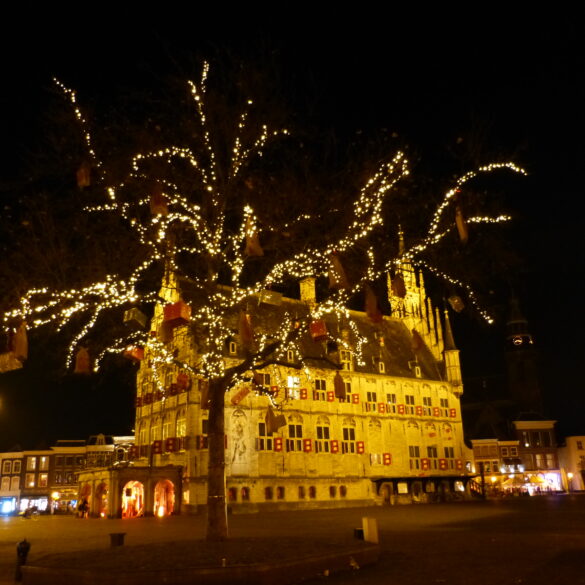Continuing the theme I wrote about in the last post (LINK), shortly after our trip to Berlin we took a ride to see the Berlin Airlift Memorial near Frankfurt Airport.
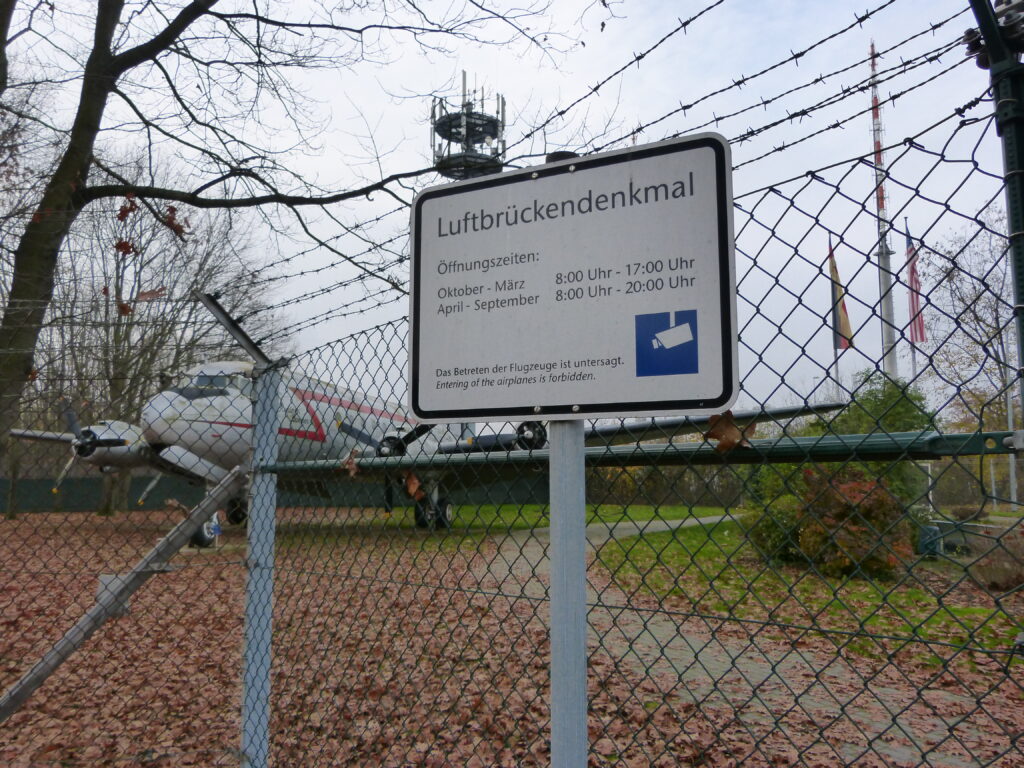
After World War II, the Soviets controlled eastern Germany. Berlin, which is in eastern Germany, was itself divided with the Soviets controlling East Berlin and the Allies controlling West Berlin.
For just over a year, from April 1948 to May 1949, the Soviets blocked all surface traffic access to the Allied sector. This meant trucks, trains, barges etc. could no longer be used to deliver supplies to West Berlin, so the Allies began dropping supplies from planes.
Over 250,000 flights took place during the blockade to drop millions of tons of rations such as milk, cereal, meat, flour, coffee and fuel into West Berlin.
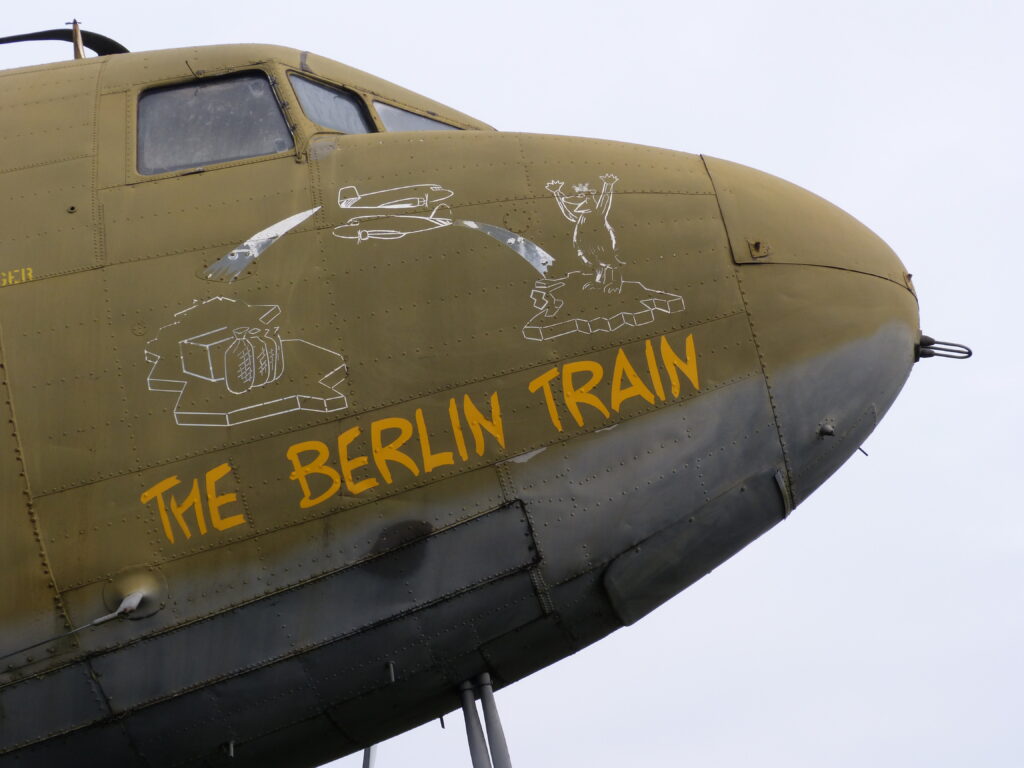
One of the pilots, Gail Halvorsen, began dropping candy and gum – tied to tiny parchutes – from his plane. Other pilots joined in the candy-dropping and the Germans began calling them the “raisin bombers” or Rosinenbomber. They were called Candy Bombers in English.
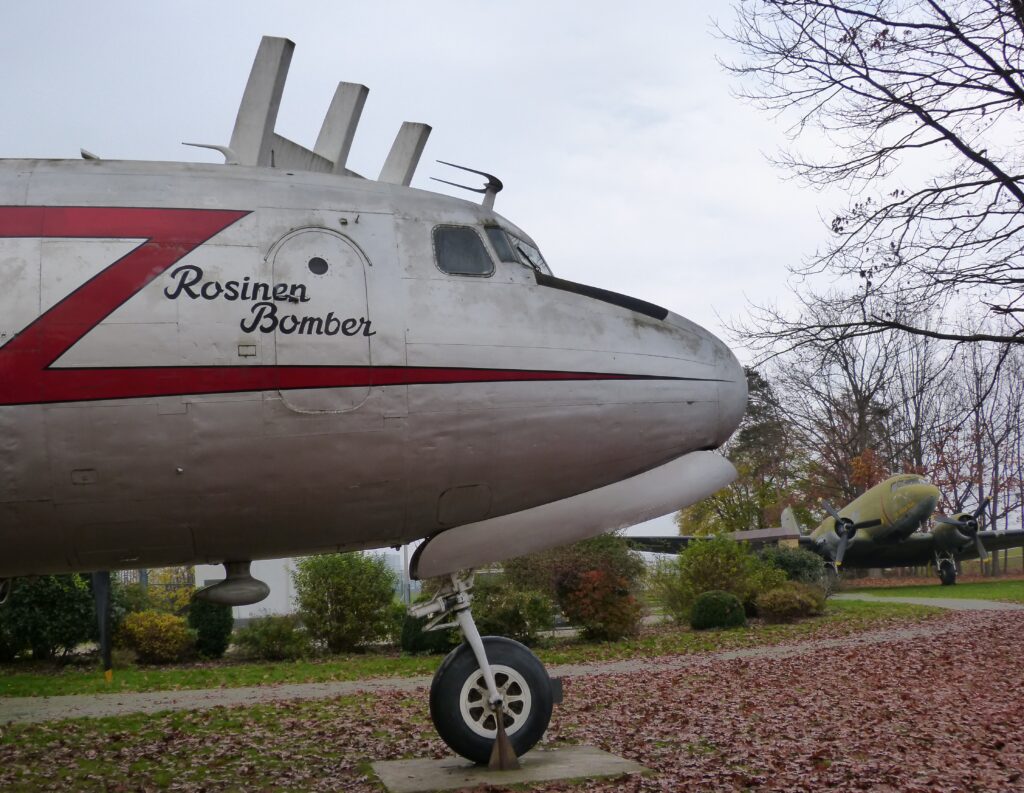
As of this writing, Mr. Halvorsen is 94 years old and still makes appearances in Germany such as when a school was named after him a couple of years ago.
The site of the memorial near Frankfurt Airport is at the former Rhein-Main Air Base, which was a U.S. Air Force base.
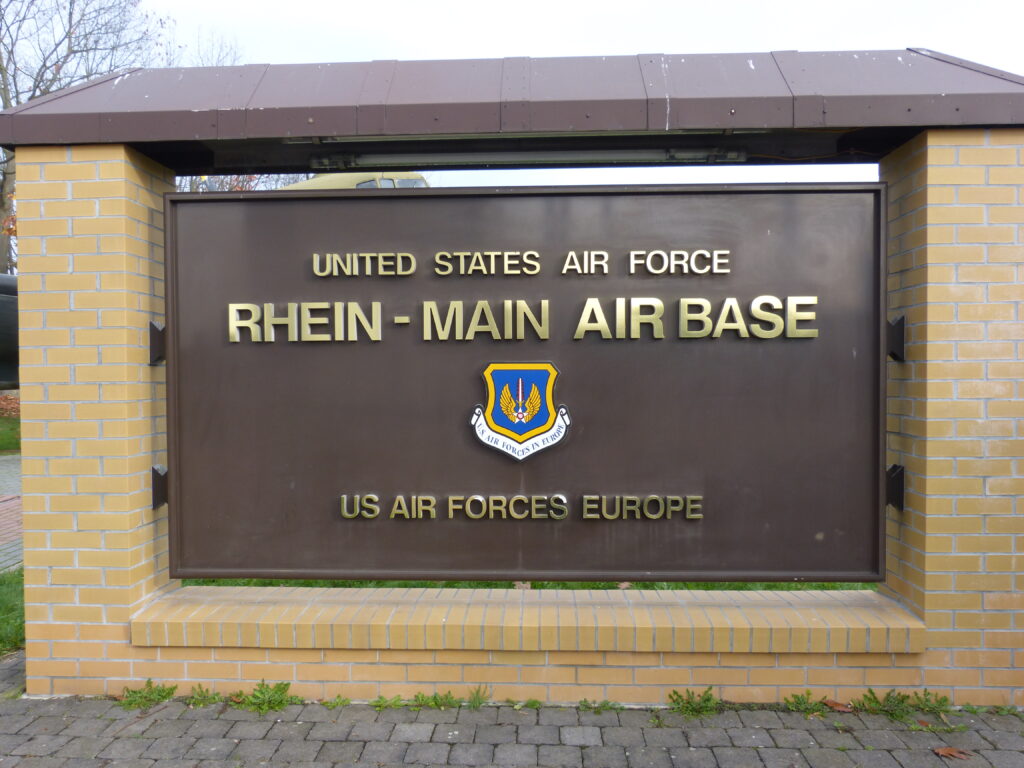
The base was a hub for the Berlin Airlift operations. It closed in 2005.
There is even a section of the Berlin Wall at the memorial site.
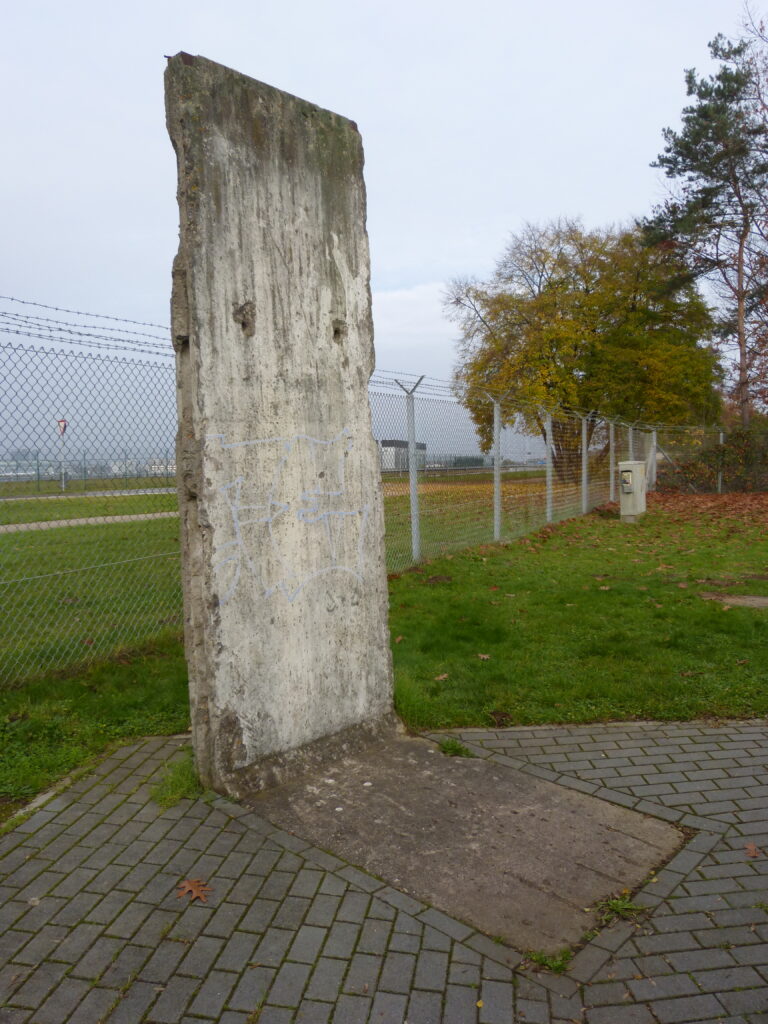
And a marker showing the distance to Berlin in both nautical miles and kilometers.
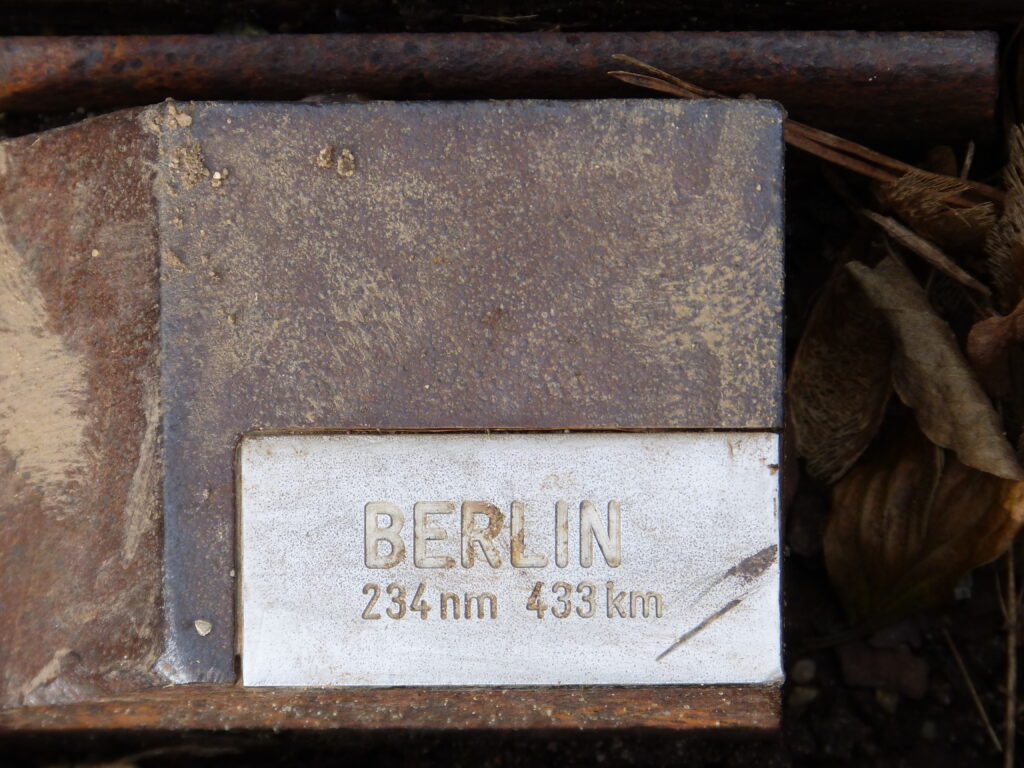
The white, curving structure that you see here is a memorial to the 79 airlift personnel who died during the operations. Each prong represents one of the 3 air corridors used during “Operation Vittles”, and the names of the US and British Airmen killed in the process are inscribed on the base of each.
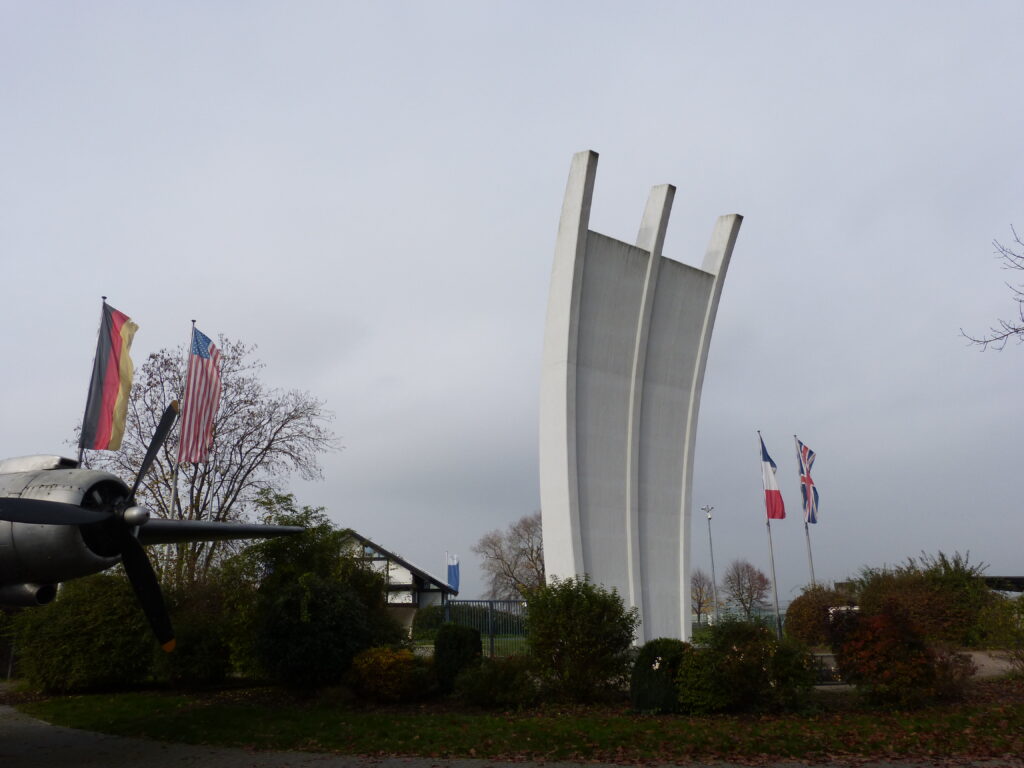
Notice the German, American, French and British flags surrounding the memorial.
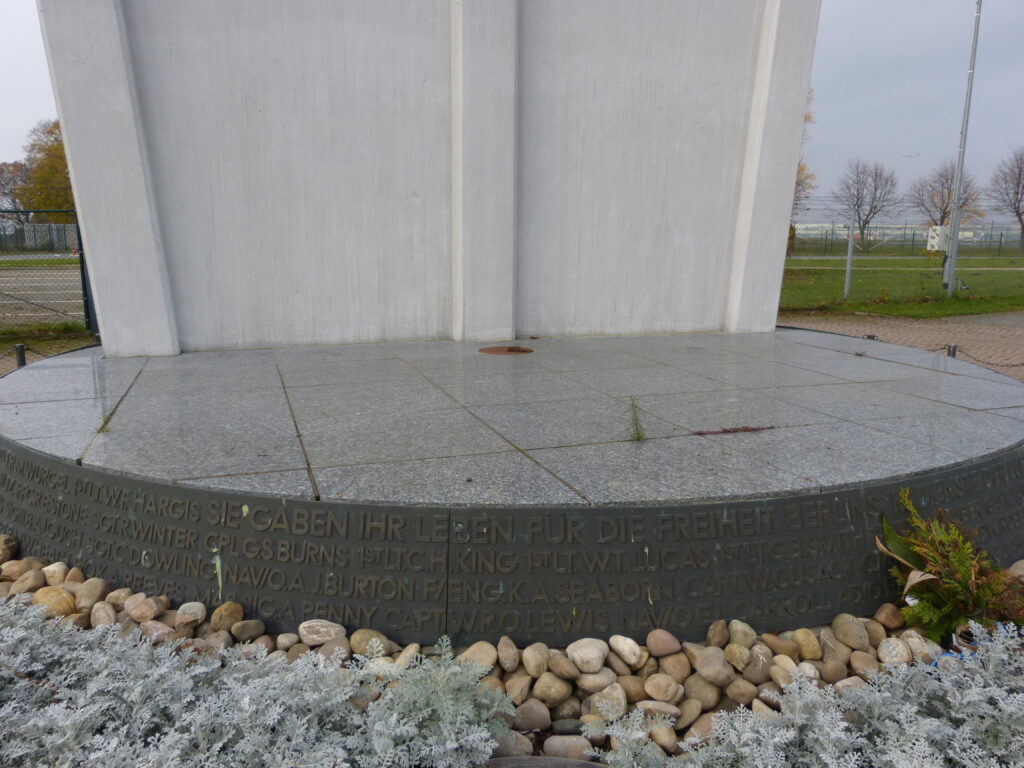
The names of the 79 who died are shown at the base of the memorial. There is also a statement, in German, saying that they gave their lives for the freedom of Berlin.
The memorial area is pretty small and in addition to what’s described above, there are just a couple of other airplanes.
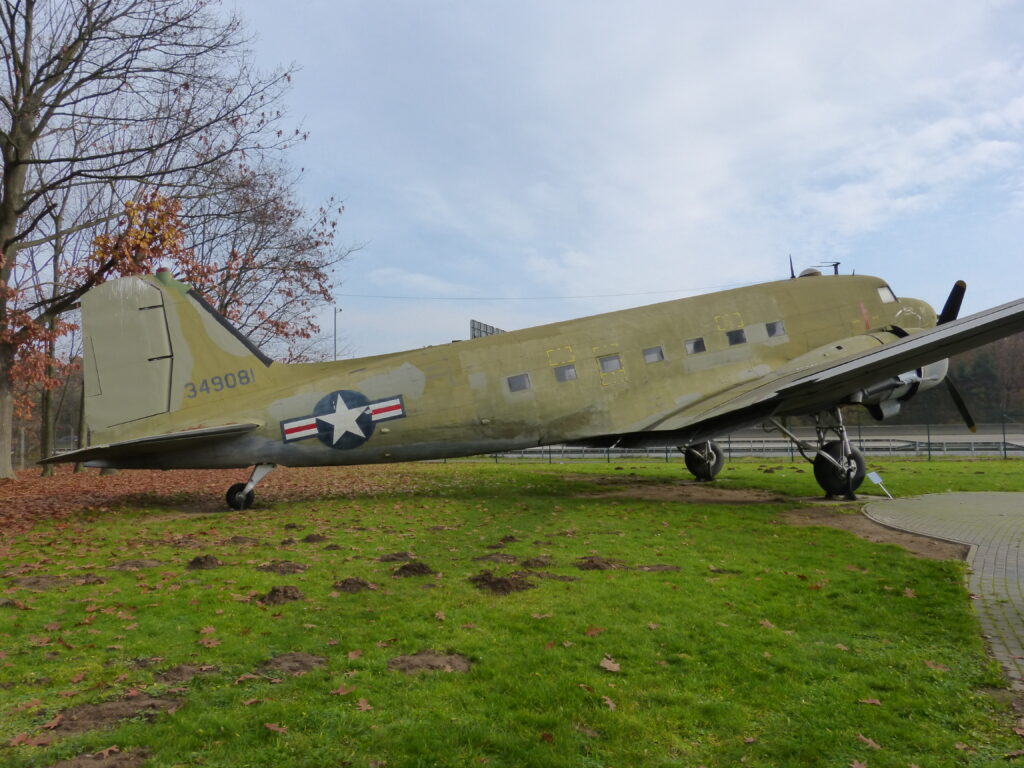
Don’t get any ideas about climbing inside them, though.
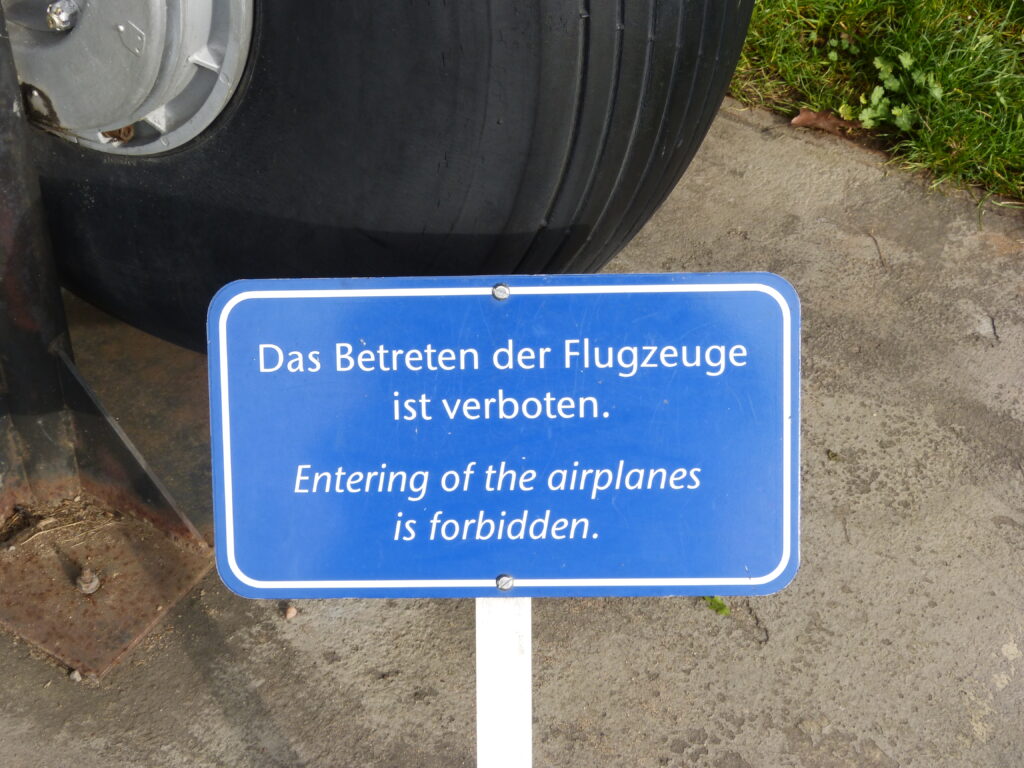
It’s a little difficult to find information on the location of this memorial, so if you want to visit, look for CargoCity Süd. You can put that into your GPS or look it up in Google Maps etc.
Bear right and you will see a house on the left with a bus stop just before it.
There is a barrier across the road with a guardhouse on the right. If you get to the bus stop, indicated by a sign with a yellow circle outlined in green with the letter H in it, you’ve gone too far. You don’t want to get as far as the barrier and the guardhouse.
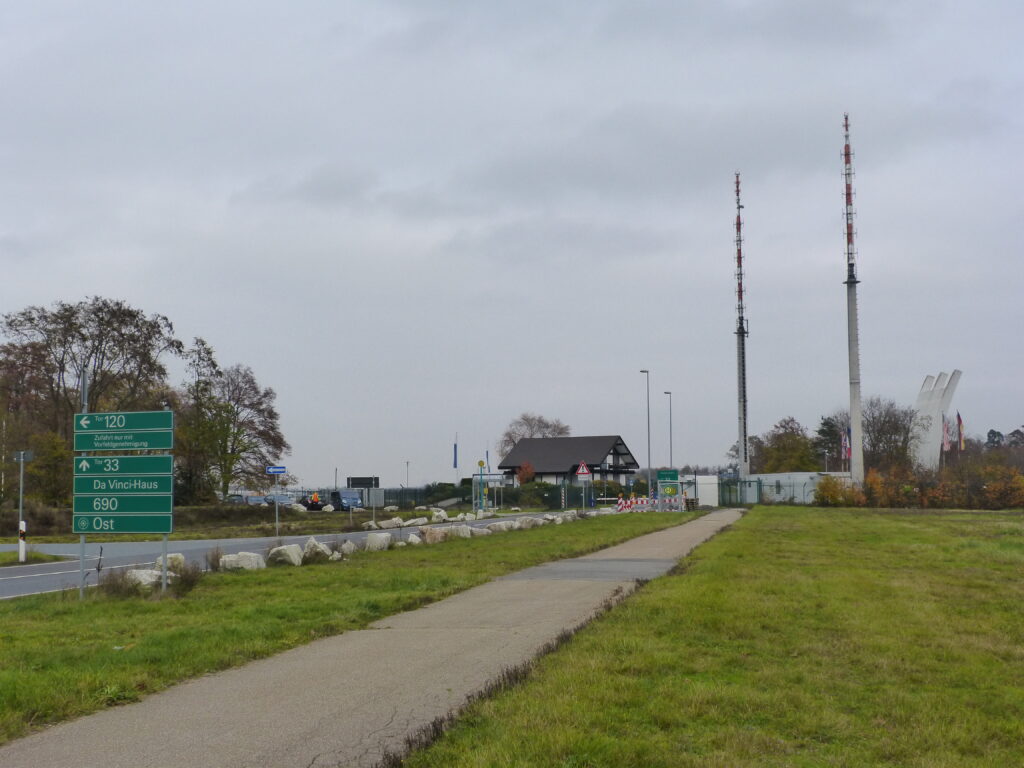
Before you get to the bus stop, you’ll see a parking lot on the left and you can park there. If you accidentally get to the guardhouse like we did, just tell the guard you are visiting the Berlin Airlift Memorial and s/he will direct you to the parking.
You’ll then need to walk back in the direction from where you came, turn left and then left again (you’ll see the path/sidewalk) and you will see the memorial on your left.
Opening hours for the memorial are 8:00 a.m. to 5:00 p.m. from October through March, and 8:00 a.m. to 8:00 p.m. from April through September. Entrance is free.
The memorial is less than 30 minutes from where we live and it’s definitely someplace we’ll suggest to out-of-town visitors. You don’t need more than an hour at the site, so check it out if you’re in the area and have some free time.
There is also a Berlin Airlift Memorial in, of course Berlin. If you’ve been to either of the memorials, let us know what you thought!
Berlin Airlift Memorial- http://translate.google.de/translate?hl=en&sl=de&u=http://de.wikipedia.org/wiki/Luftbr%25C3%25BCckendenkmal&prev=search
Luftbrückendenkmal- http://www.spiritoffreedom.org/airlift.html
Gail Halverson, the “Candy Bomber”- https://en.wikipedia.org/wiki/Gail_Halvorsen
31 Americans lost their lives
Each prong represents one of the 3 air corridors used during “Operation Vittles”, and the names of the US and British Airmen killed in the process are inscribed on the base of each.
GUTENBERG MUSEUM

